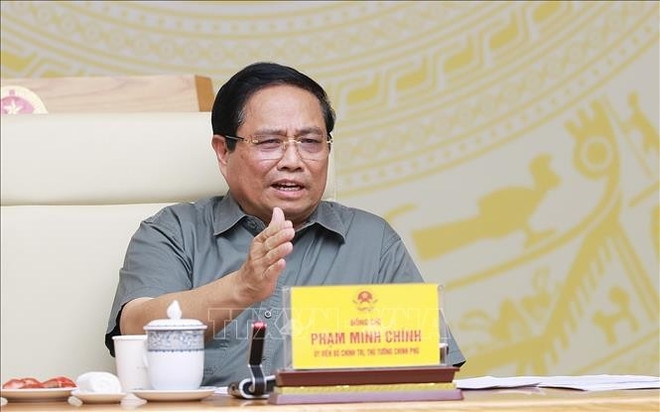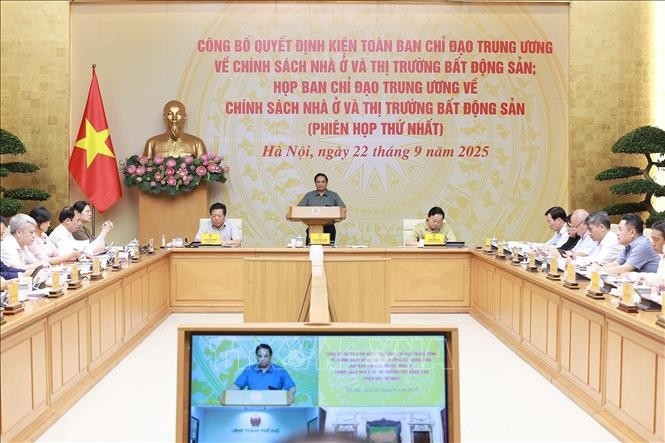The PM, who also heads the committee, emphasized the Party and State’s social welfare policies, including those on housing for the population.
    |
 |
|
Prime Minister Pham Minh Chinh speaks at the event. |
According to the leader, recent efforts to streamline institutional and legal frameworks for the real estate and social housing markets, guided by Party General Secretary To Lam, have been actively implemented.
These reforms have addressed policy and regulatory bottlenecks to foster a healthy and efficient market, while also promoting infrastructure development, lowering input costs, reducing prices, and improving public access - yielding positive results and opening new prospects for future growth, he said.
PM Pham Minh Chinh stressed that commercial housing prices must reflect market fundamentals, the economy, and citizens’ ability to pay, with the goal of ensuring housing for all and improving living standards.
He called for comprehensive solutions, close cooperation between the State and businesses, as well as coordination between central and local authorities, while aligning fiscal and monetary policies with land and other related regulations.
On that basis, the leader urged ministries, agencies, localities, and relevant stakeholders to raise awareness and take responsibility for developing the real estate and social housing markets. He highlighted innovative thinking, decisive action, and strong accountability from leadership, while continuing to remove institutional and policy obstacles related to land and banking, streamline administrative procedures, and strengthen decentralization, particularly on matters involving land, real estate, social housing, and credit.
For measures to bring down commercial housing prices, PM Pham Minh Chinh ordered boosting supply, promoting social housing, and reducing land and construction material costs, including implementing flexible material pricing that reflects market conditions and local circumstances.
He also urged cutting administrative procedures to lower input costs and increasing government involvement in developing infrastructure such as transportation, telecommunications, power, and water to create more space for housing development.
The leader noted that the State must regulate land and real estate prices through financial tools, particularly tax, fee, and other fiscal policies; establish mechanisms to lower interest rates and loan tenors where appropriate; and review income eligibility rules for social housing buyers to ensure they reflect local conditions.
He asked ministries and agencies to swiftly complete the establishment of the national housing fund within this month, while instructing localities to allocate budgets for infrastructure and provide interest-rate support for real estate and social housing loans.
    |
 |
|
An overview of the session |
The PM tasked Ministry of Construction, in coordination with local authorities, to select reputable and capable developers for specific social housing projects under the principle of “harmonizing benefits and sharing risks.”
According to the committee, Vietnam recorded over 1,000 commercial housing projects in the first nine months of this year, with 960 under construction, packing nearly 149,000 apartments and over 249,000 detached houses.
On the social housing front, 692 projects are planned, with over 633,000 units. Of those, 165 projects with over 110,000 units are done, hitting 59.6% of the 2025 target. Plus, more than 334,000 rundown or temporary homes have been refurbished nationwide.
Real estate deals numbered 430,000, flat from last year. The market showed signs of recovery but remains uneven. Condominium sales edged up in major cities, mostly mid-range, while land plot transactions slowed.
Source: VNA